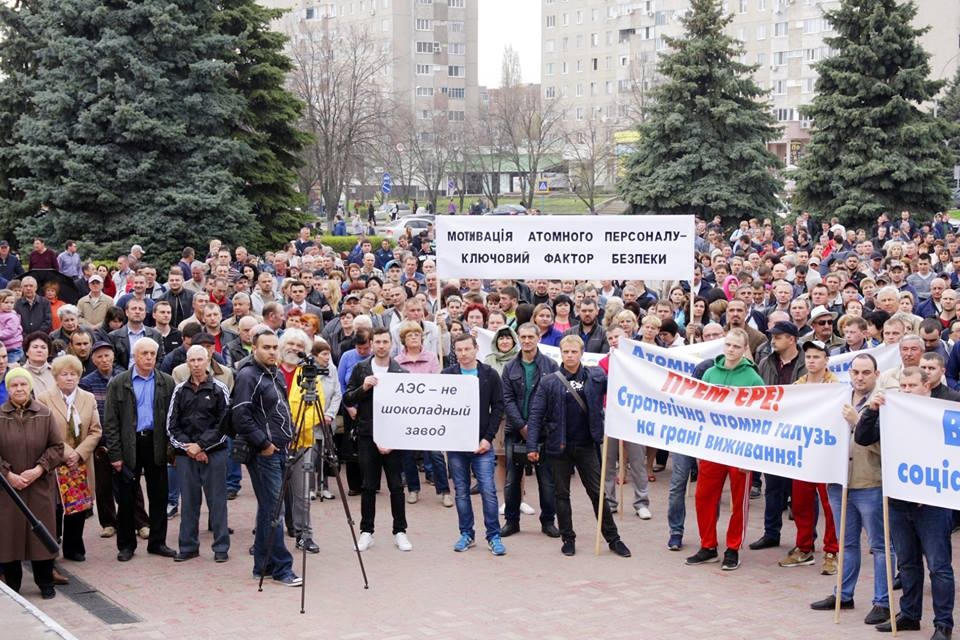19 April, 201812,000 members of IndustriALL affiliate Nuclear Power and Industry Workers Union of Ukraine (Atomprofspilka) protested in eight different cities on 12 April to protest a state policy of low energy tariffs, which result in low pay for workers.
The National Energy and Utilities Regulatory Commission has set the tariff for state-owned enterprises that generate electricity at US$0,02 per kilowatt. The tariff for private thermal power plants is 3,5 times higher at US$0,07 per kilowatt.
The state enterprise Energorynok does not pay for all electricity provided by Energoatom. Payments of US$45,9 million are missing for 2017, and the general arrears for the electricity output is US$482 million. The lack of payment affects wage levels, leading to a loss of qualified staff.
At a press conference on the critical situation in Ukraine’s nuclear industry, Valery Matov, president of Atomprofspilka, said:
“Ukraine’s nuclear industry is key, not only for energy, but also for the economy. The main cause for concern is the discriminatory tariff policy towards state-owned enterprises, in particular Energoatom”.
According to the chair of the union at Energoatom, Alexey Lich, the required number of licensed personnel for operating nuclear facilities is clearly defined. A lack of personnel will lead to closure of these facilities.
Atomprofspilka is demanding:
- Financial support to nuclear enterprises;
- That the debt to Energoatom is paid and a special state programme is put in place;
- That the National Regulator adopts a sufficient electricity tariff;
- Better pay according to European social standards in the nuclear sector.
If demands are not met within a month, workers will organize a rally in Ukraine’s capital Kiev.
IndustriALL general secretary Valter Sanches says:
“We hope that the government will immediately address the workers’ demands. We stand firm in solidarity with Atomprofspilka, and are ready to provide further support at the global level.”






